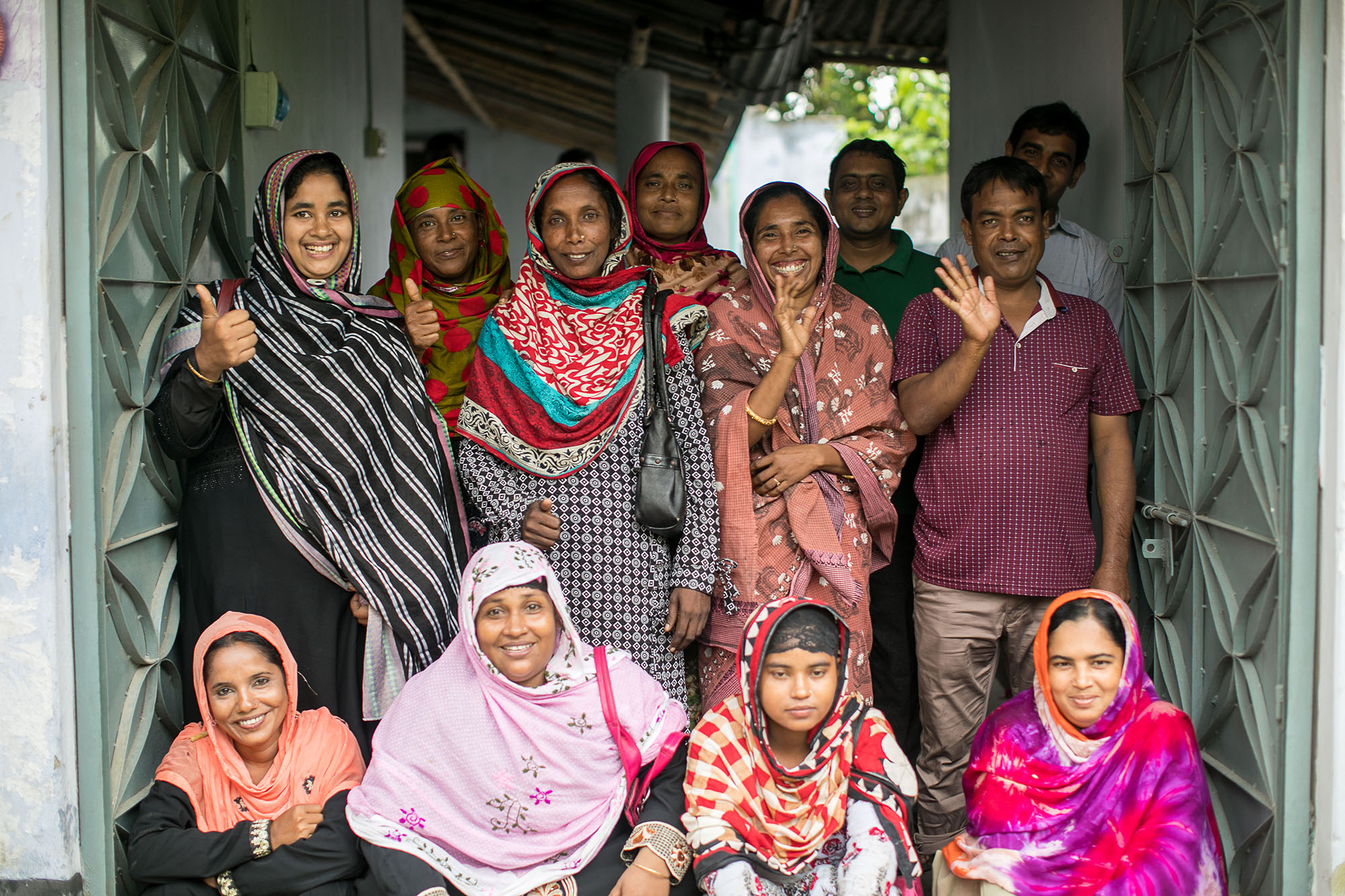Buckets of unseasonably late monsoon rains fell when I visited the office of Barogachi Women’s Cooperative in Rajshahi, Bangladesh. I also came woefully unprepared, with no protection from the rain, so I readied myself to be damp the rest of the morning. Kindly, some of the cooperative members had anticipated my packing neglect and ran an umbrella out to me, saving the day.
That’s par for the course with these women. The members are very good at finding solutions to challenges—most of them much bigger than a guy showing up without an umbrella.
Since gaining legal recognition from the government in 2015, Barogachi has grown from 56 members to 383. The agricultural cooperative is the first co-op supported by Heifer Bangladesh.

Bangladesh is a country known for gender inequality. According to UNICEF, “girls are often considered to be financial burdens on their family, and from the time of birth, they receive less investment in their health, care and education.”
That’s why Heifer helps form womens’ groups here. Financial soundness is a key part of the cooperative’s vision. And while they also focus on ending poverty for member families and growing as an organization, Barogachi is dedicated to social change.
“Before forming the cooperative, we felt alone,” said Monira Begum, co-op president. “We were scattered in different places.” Banks would not open accounts for the women assuming they wouldn’t get their money back.
“In society, no one cared what we wanted or what we were doing,” she said. “No one cared about me because I’m just one person. After forming the cooperative and getting government approval, we have power. In society, even the local government, everyone values us.
The present situation is use of the dowry system is down 50 percent, early marriage has been reduced 80 percent already. Abuse is down from 100 percent to 10 percent. Monira Begum, Co-op President
And it’s being reflected in their ledgers, too.
Last year, shareholders received a 55 percent dividend yield, and the cooperative netted a profit of nearly $4,000. Additionally, hundreds of loans were granted to members for agricultural activities.
But financial soundness is only part of the cooperative’s vision. In addition to ending poverty for member families and growing as an organization, Barogachi is dedicated to social change.
Monira Begum said the organization uses education and awareness campaigns to prevent early marriage, domestic abuse and the dowry system. Early on, the success of the cooperative is striking.
“The present situation is use of the dowry system is down 50 percent,” Monira Begum said. “Early marriage has been reduced 80 percent already. Abuse is down from 100 percent to 10 percent.”
According to Monira Begum, the key is coming together to form a collective voice.
“Now we are confident,” she said.